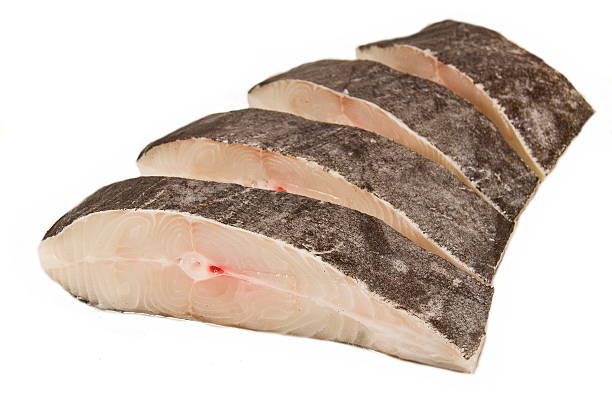Halibut is a type of flatfish that is found in both the Atlantic and Pacific oceans. It is known for its delicate, mild flavor and firm texture, making it a popular choice for those looking to include more fish in their diet. But beyond its taste, halibut also boasts a number of nutritional benefits that make it a healthy choice for those looking to improve their overall health and wellbeing.
One of the key nutritional benefits of halibut is its high protein content. A 3-ounce serving of halibut contains around 20 grams of protein, making it an excellent source of this essential nutrient. Protein is important for maintaining and building muscle mass, as well as for repairing and regenerating tissues throughout the body. Additionally, it also helps to keep us feeling full and satisfied, making it a great option for those looking to lose weight or maintain a healthy body weight.
In addition to its protein content, halibut is also a good source of omega-3 fatty acids. These healthy fats are essential for maintaining the health of our heart, brain, and immune system. They have been shown to reduce the risk of heart disease, improve cognitive function, and reduce inflammation throughout the body. A 3-ounce serving of halibut contains around 1,500 milligrams of omega-3s, which is roughly three times the recommended daily intake for adults.
Halibut is also a good source of vitamin B12, which is essential for maintaining healthy red blood cells and preventing anemia. It is also important for maintaining healthy nerve function and keeping the brain and nervous system functioning properly. A 3-ounce serving of halibut contains around 1.5 micrograms of vitamin B12, which is around 25% of the recommended daily intake for adults.
Halibut is also a good source of minerals such as selenium, phosphorus, and potassium. Selenium is an antioxidant that helps to protect cells from damage and supports the immune system. Phosphorus is important for maintaining strong bones and teeth, and potassium is essential for maintaining healthy blood pressure and heart function.
Halibut is also low in mercury, which is a concern with some types of fish. This is because halibut is a bottom-dwelling fish and therefore doesn’t consume as much mercury as species that are higher in the food chain.
In conclusion, halibut is a healthy and nutritious choice for those looking to include more fish in their diet. Its high protein and omega-3 content make it a great option for maintaining and building muscle mass, while its vitamin B12 and mineral content help to support overall health and wellbeing. Additionally, its low mercury content makes it a safe option for those who are concerned about their exposure to this toxic element. To get the most nutritional benefits, it’s best to consume halibut grilled, baked or broiled, rather than fried.

 Home
Home Health
Health Diet & Nutrition
Diet & Nutrition Living Well
Living Well More
More












